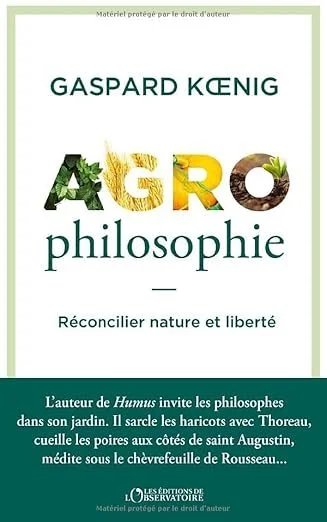AGROPHILOSOPHY
Gaspard Kœnig
(Les Éditions de l’Observatoire, 336 pages, 2024)
***Long-listed for the Prix Femina Essai 2024***
***Spanish and Italian rights acquired***
Settled in the Normandy countryside, writer and philosopher Gaspard Kœnig attends to his one hectare of land: a vegetable garden, an orchard, a fallow field, and a few flowerbeds. As a newly minted neo-rural seeking a freer way to live in harmony with nature—and overwhelmed by the tasks at hand—he turns to his old friends, the philosophers, for advice.
To most people, philosophers appear to be city people. From Athens and Rome to Berlin and Boston, they frequent amphitheaters more than vegetable gardens, talk about power and not orchards, care a lot about knowledge but not about the growth of beans. At least, at first glance. Kœnig shows how, at the turn of a page or a metaphor, they reveal their link to the earth. Socrates strolls in the fresh grass, Locke picks apples, Kant observes the trees. The anarchists let the brambles grow, and the Hegelians want French gardens. If we look carefully, we find an archipelago of remarks, anecdotes, and analyses that allow us to develop a rural side of thought. Tell me how you cultivate your garden, I’ll tell you who you are!
Kœnig interweaves philosophical references, botanical discoveries, and political reflections to draw his own agrophilosophy as he looks for new paths to reconcile entrepreneurial freedom and respect for the environment, progress and decline, ecology and humanism. And to imagine the contours of a society in sync with the humus cycle.
Gaspard Kœnig is the author of essays and novels, including Humus, soon to be published in English and winner of the Transfuge Award for Best French-Language Novel, as well as Notre vagabonde liberté: À cheval sur les traces de Montaigne (Éditions de l’Observatoire, 2021; Pocket, 2023), and La fin de l’individu: Voyage d’un philosophe au pays de l’intelligence artificielle (Éditions de l’Observatoire, 2019).

